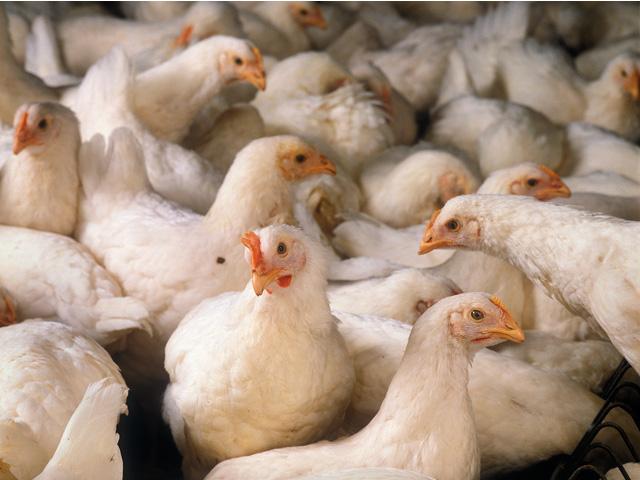P&S Action Brought Against Koch Foods
DOJ Takes Action Against Penalizing Farmers for Switching Poultry Processors
OMAHA (DTN) -- Koch Foods, one of the country's largest chicken processors, has reached a proposed settlement agreement with the U.S. Department of Justice (DOJ) over allegations that Koch threatened farmers with steep "exit penalties" if they tried to leave Koch and grow chickens for another company.
The DOJ filed a complaint Thursday in the U.S. District Court for Northern Illinois. It also filed a proposed settlement reached between DOJ and Koch.
The consent decree prohibits Koch Foods from penalizing farmers for switching processors and requires the company to return fees, expenses and penalties to producers that Koch tried to prevent moving to other growers.
For clarification, Koch Foods -- pronounced "cook" -- is headquartered in Illinois and is a separate company from the manufacturing, energy and fertilizer giant Koch Industries -- pronounced "coke" -- which is based in Kansas.
DOJ brought the case with the Department of Agriculture to "promote free and fair competition and reinvigorate enforcement of the Packers and Stockyards Act," said Michael Kades, deputy assistant attorney general in DOJ's Antitrust Division.
"Antitrust and competition laws protect growers' right to benefit from competition for their products, their services and their labor," he said.
Koch has processing facilities in Alabama, Georgia, Mississippi and Tennessee and is considered the fifth-largest poultry processor in the country. The company started adding exit penalties to grower contracts in 2014 "to insulate itself from competition," DOJ stated. Under the contracts, farmers could face penalties if they attempted to jump to a different processor within 10 to 15 years, depending on the contract. Those penalties could range from $24,000 to $56,000 -- but in some cases, it was "up to hundreds of thousands of dollars." The penalties were as much as 100% of farmers' annual take-home income in some cases.
"Koch claims that the exit penalty was meant to compensate Koch Foods for the real impact growers leaving has on Koch. But that is just another way of saying that, without the exit penalty, Koch would have to pay farmers competitive rates to keep them from switching to one of Koch's competitors," DOJ stated.
P[L1] D[0x0] M[300x250] OOP[F] ADUNIT[] T[]
Under the terms of the proposed settlement, which must be signed off by the District Court, Koch would be required to:
-- Inform all current growers that Koch will not be enforcing the exit penalty.
-- Reimburse farmers for all termination penalty payments and out-of-pocket legal expenses caused by the exit penalty.
-- Stop including termination penalties in any grower's contract and refrain from trying to collect any exit penalties for at least the next seven years.
-- Refrain from retaliating against growers who were involved in challenging the exit penalties or who cooperated in the investigation.
-- Report compliance with the settlement, including annual certification for the next seven years, to ensure Koch is complying with the consent decree
The consent decree is open for a 60-day comment period before the U.S District Court decides on the terms of the consent decree.
DTN asked Koch for comment on the lawsuit and settlement but did not immediately receive a response.
Poultry companies have been in the eye of DOJ and USDA recently. In June, DOJ filed an action and settlement against Wayne-Sanderson Farms alleging the company's tournament system for compensation also violated the Packers and Stockyards Act.
The DOJ case against Koch Foods came just a day after USDA issued a new final rule over poultry processor contracts with producers. USDA announced the publication of a final rule on Wednesday that requires a Live Poultry Dealer Disclosure Document that provides growers with "information they need to have a better understanding of realistic outcomes they can expect before making important financial decisions, such as capital-intensive facility improvements or taking out loans. In particular, the rule requires that dealers disclose earnings for growers by quintile, establish minimum flock placements, and explain variable costs growers may incur and how companies handle certain important circumstances such as sick flocks and natural disasters. It also establishes an accountability and governance framework that must be certified by the poultry company's CEO."
The rule separately requires dealers to provide tournament-specific disclosures of inputs to poultry growers who are paid using a poultry grower ranking system and requires that companies also show the distribution of inputs, housing specifications, and any feed disruptions for all the growers in the tournament, at the time of payment. To protect growers' privacy, their names will not be disclosed. Under the final rule, live poultry dealers that slaughter fewer than 2 million live pounds of broilers weekly or 104 million pounds annually are exempt from these requirements, provided they do not require additional capital investments.
The final rule will be published in the Federal Register.
The National Chicken Council, which represents the broader industry, said that the rule "would have a devastating financial impact on the U.S. chicken industry by raising costs and administrative burdens, opening the floodgates for frivolous litigation, and ultimately destabilizing a successful compensation system for our farmers."
See the consent decree memo, which has details for commenting and filing claims for payment, here: https://www.justice.gov/….
Chris Clayton can be reached at Chris.Clayton@dtn.com
Follow him on X, formerly known as Twitter, @ChrisClaytonDTN
(c) Copyright 2023 DTN, LLC. All rights reserved.




